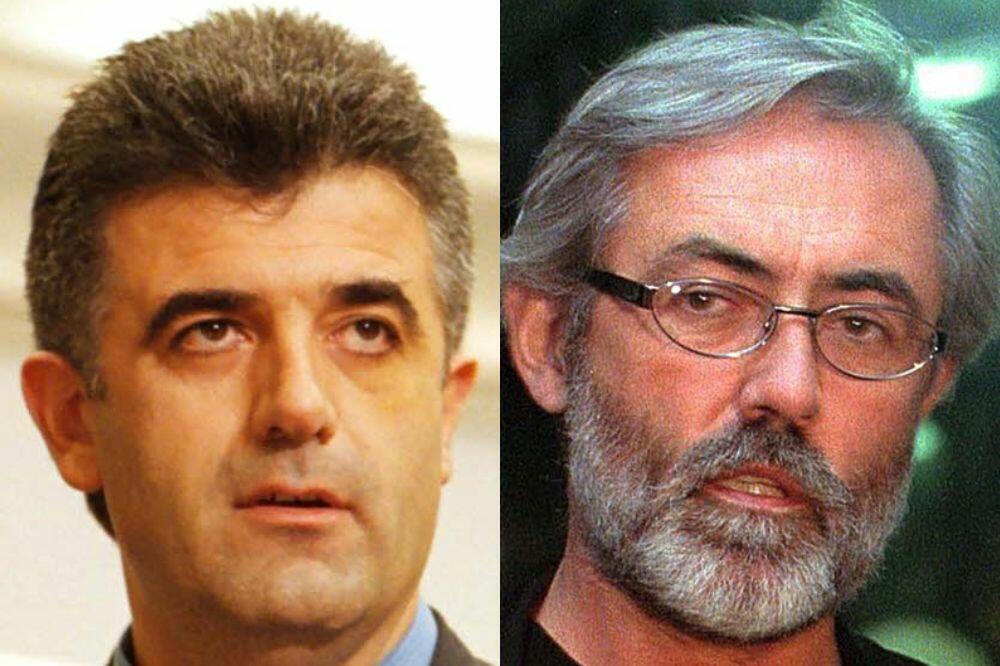Everyone who they are not, according to last week's verdict, did they neither prepare nor carry out the 1999 murder of Slavko Ćuruvija have one common feature. Namely, Marković, Radonjić, Kurak and Romić were all members of the detachment of the Service, which in Serbia is beaten by the BIA out of mercy.
Duško Jovanović was shot five years later, in the center of Podgorica. Damir Mandić, as is well known, was convicted of complicity in the murder, but the Montenegrin Service, which in accordance with the changes in 2005 became the ANB, was rarely directly linked to this crime or, God forbid, possibly accused of preparations or itself the execution of the editor-in-chief of Dan. Or, at least, he sought someone's responsibility among this brotherhood because she did not find out in time and prevent the murderers from their intention, because that is one of the jobs that the Service, even if it was called DB, BIA or ANB, should deal with.
By a simple comparison, it could be concluded that, unlike its fellow Serbs, the ANB was a nice and peaceful service that got away with the murder of a journalist, an editor in a newspaper that published some articles there about tobacco smuggling, in which the state itself is accused of this highly profitable crime. top.
Well, it won't be possible, Montenegrin brothers!
As for Ćuruvija, I have already said: the acquittal is, above all, a logical consequence of the current general political and social context, and it would be wrong to observe it in isolation from the overall social trends in Serbia. We can discuss the court, the judges, the formal failures in the investigation and indictment, the possible influence of the services and the regime, but I'm afraid that's just obscuring the essence. The verdict simply could not have been different because this outcome of the trial of the accused for the murder of Ćuruvija is a precise diagnosis of Serbian society. In that judgment, all the bad things of Serbia in the last three and more decades were sublimated in the darkness of nationalism and cheap populism, war crimes and aggressive clericalism, mythomania, kitsch and primitivism as the dominant cultural model, pan-Slavic brotherhood instead of European values. All this, in one way or another, is clearly depicted in the genesis of the whole case of Ćuruvi, from the moment of the murder to the present day and, what is worst, it testifies that little has changed in Serbia from the time when a burst was fired at the journalist until the acquittal sentences to his executioners who they are not committed this crime.
From this point of view, the fact that even two decades after the murder of Duško Jovanović, neither the principal nor the immediate perpetrators are known is one of the indicators of the state of Montenegrin society and how far it has come, above all, in the reform of the security sector.
In the case of Duško Jovanović, for example, it was never announced, at least not publicly, whether an investigation was conducted by the then State Security, i.e. ANB. This raises many understandable doubts because it does not take too much wisdom to conclude that the editor-in-chief of Dana, if for no other reason, was under the supervision of the Service, very likely, as they would say in Serbia, "on measures" or by Montenegrin "secret surveillance measures". Like Ćuruvija at one time. From the "Curan dossier", which reached the media after Slavko's murder, and whose authenticity was confirmed in court, it was seen that DB operatives closely followed the movements of the editor-in-chief of Dnevni Telegraf and Evropljanin and informed the central office about it minute by minute. .
It would be very interesting to determine whether Duško Jovanović was followed in the days before the murder and whether it was someone, say in the famous VII administration, which did not exist but is still mentioned today, someone was recording it all.
And speaking of the famous VII Directorate, it should be known that in the Serbian DB there was a so-called "FF department", also known as the "death squad". That group of operatives is named after the well-known Frenki Simatović, a convicted war criminal and former head of the RDB, and the slightly less well-known Dragan Filipović Fića, who, according to the security guards themselves, is considered one of the five most influential people in the Service in Serbia during the 2008s. century. In XNUMX, he left via Montenegro for Russia, and then for Kazakhstan and China, allegedly out of fear of rumors that he would be extradited to The Hague. Although he told his friends that he was threatened with indictment for the murder of Ćuruvija, he returned to Serbia after eight years.
Whether the VII administration is the Montenegrin version of Milošević's "FF department" is difficult to say, but when some in the public are waving the existence of that mysterious part of the Montenegrin DB, it would be good to shed light on that mystery once and for all.
Speaking of this dreary everyday life, in that year 2004, there certainly existed what became known as BIL - persons of security interest, so it could be checked whether the then DB under the leadership of Duško Marković had on the reverse side those who Were they a potential threat to Jovanović's safety and to determine where they were on the night of May 27, 2004
After all, in the program "Nachisto" of Television News, Duško Marković once said that the former secret service had information that Jovanović's safety was threatened before he was killed.
He said that he asked the then Minister of Internal Affairs, Andrija Jovićević, to investigate Jovanović's claims that someone from SDB was preparing his liquidation.
"After Jovanović announced that he had information that he was in danger from someone from the SDB, I sent a letter to Minister Jovićević in which I insisted that official police actions be taken and all the circumstances be investigated, and that the publicly announced claim be confirmed or rejected. The answer of the minister at the time was that he could not do that, because Jovanović did not file a criminal complaint," said Marković.
One of the key pieces of evidence against those who they are not killed Ćuruvija were the locations where they were at the time of the murder, collected on the basis of data from base stations. I believe that it would be very interesting to check the communication in a wider circle around the place where Duško was killed in a similar way.
And so on, and so on...
It is senseless to further state what else can indicate the direct and indirect connection of the Service (DB and ANB) with the murder of Jovanović, but also with many other wrongdoings committed in Montenegro in the last few decades. This, however, is not a surprise to anyone who knows at all the power and fascination of the Balkans with the secret services. Just as it is quite logical that in this kind of Montenegro, the ANB and the security sector in general are mostly lasciviously viewed as the fourth branch of government, which often has a decisive influence on political trends.
By way of comparison, in October 2017 in Malta, journalist Dafne Caruana Galizia was killed in the explosion of a bomb placed under her car. The investigation led to the resignation of Prime Minister Joseph Muscat in 2019, as his close associates were implicated in the case, and in 2022, the DiGiorgio brothers were each sentenced to 40 years in prison after pleading guilty to murdering a journalist.
Jan Kucijak, an investigative journalist, was killed in Slovakia in 2018. The killer was discovered and after two years he was sentenced to 23 years in prison.
These two examples, which have many similarities with the murders of Duško Jovanović and Ćuruvija, can be solved effectively and in a relatively short time. It is necessary, of course, in addition to political will, the existence of an institutional framework that includes the police, prosecutor's office and courts that are free from any influence, from political to criminogenic. And precisely in this fact is the answer to why the murder of Duško Jovanović, the wounding of Olivera Lakić, the throwing of a bomb at the newsroom of Vijesti and other cases of attacks on journalists in Montenegro have not yet been solved. The non-detection and prosecution of the perpetrators in all those cases are irrefutable proof that in the chain of police - prosecutor's office - court, there is still not enough capacity, will, desire and courage for the system to face murders and attacks on journalists. The murder of Jovanović is, however, the most accurate testimony to the existence of the Service in a format which, according to all available indicators, is the main generator of the most dangerous crimes under the direct protectorate of the state itself.
I'm sure that last Friday, after the session of the Parliamentary Committee for Security and Defense, the hardened members of Debe, excuse me members of the ANB, fell into a blissful sleep.
Rightly so, because the Service that has such politicians should not worry about its future.
Bonus video:





